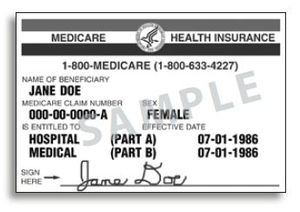So you’ve finally decided it’s time to take a more active role in your parents care. Perhaps you’ve already assumed responsibility for making sure the bills are paid on time. You may also accompany your mom or dad on doctor’s visit. But is it time to move them closer to you or in your home because you’re concerned that the distance or occasional visits aren’t enough to ensure their safety?
Been there. Know how you feel. After years of talking about moving my mom closer to me, she and I decided it was time in 1999.
The first thing I did was establish her residency in the new state so I could open a bank account in her name and obtain medical insurance, either through a private insurer or through a government program. If your parent already banks with a national bank like Bank of America or Citigroup, this likely won’t be necessary because you can access the account from your new home sate. But if you do want to switch banks note that social security will not transfer a participants benefits without the senior’s direct participation.
A bank account in your parent’s name also is important if you are keeping your finances separate and to establish residency and verify the senior person’s income for nursing homes, housing programs, and government programs trying to qualify seniors for services. Residency is especially important if your parent plans to apply for Medicaid to help pay for the nursing home, adult day care or home health aide.
Mom was already Medicare eligible so I went to Medicare.gov to research the insurance plans available in the area we’d live. The site provided some great information about the plans’ benefits, costs, co-pays and prescription drug coverage. It also allowed me to compare plans.
After I found an insurance plan, I looked for doctors who accepted her insurance coverage or were in-network and checked their background and rating. I choose a doctor whose practice was close to our home so taking her to senior care appointments would be as simply and quick as possible. Because mom is blind, I also called the local services for the blind to learn what services they offered (more on that in a later post).
Even though I couldn’t apply for area services until she relocated, I was able to arrange appointments within days of her arrival and get her new insurance effective by the first of the month. And before she left New York, I made sure she had enough medicine to last until she saw her new doctor and was able to access her bank account in the state she was moving from with a debit card.
I had a lot more to do to prepare the house and mom’s best friend came along to help with that. But the medical and financial tasks were taken care of and in many cases, that will be what most people who relocate their parents will have to tend to first.
For more information about what’s necessary to relocate and establish residency for your disabled or aging parent contact you local state department on aging or social services.
What was it like when you relocated a parent to your home, a nursing facility or senior housing residence? Tell us about it.
If you liked this article, you may also want to read these articles Cynthia.
Related articles
- Republican Medicare plan tanks in new poll (dailykos.com)



Leave a Reply